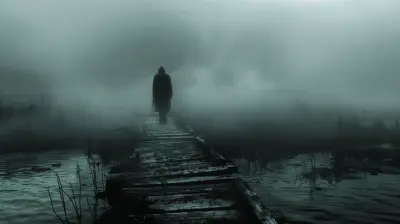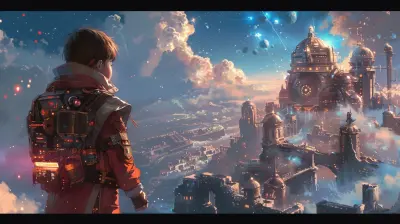Exploring the Darker Side of Human Nature in Horror Games
8 October 2025
Let’s be real for a second here—there’s something absolutely fascinating about horror games. They mess with your mind, keep you on edge, and often leave you questioning what kind of twisted genius came up with those terrifying scenarios. But beyond the jump scares and chilling atmospheres, there’s something deeper lurking in the shadows. Horror games have this uncanny ability to shine a light (ironically) on the darker side of human nature.
Ever wondered why we gravitate toward fear? Or why some of us love to explore the grotesque corners of the human psyche through virtual worlds? Grab your flashlight, folks, because we’re about to venture into the unsettling yet gripping realm of horror games and what they reveal about us as humans.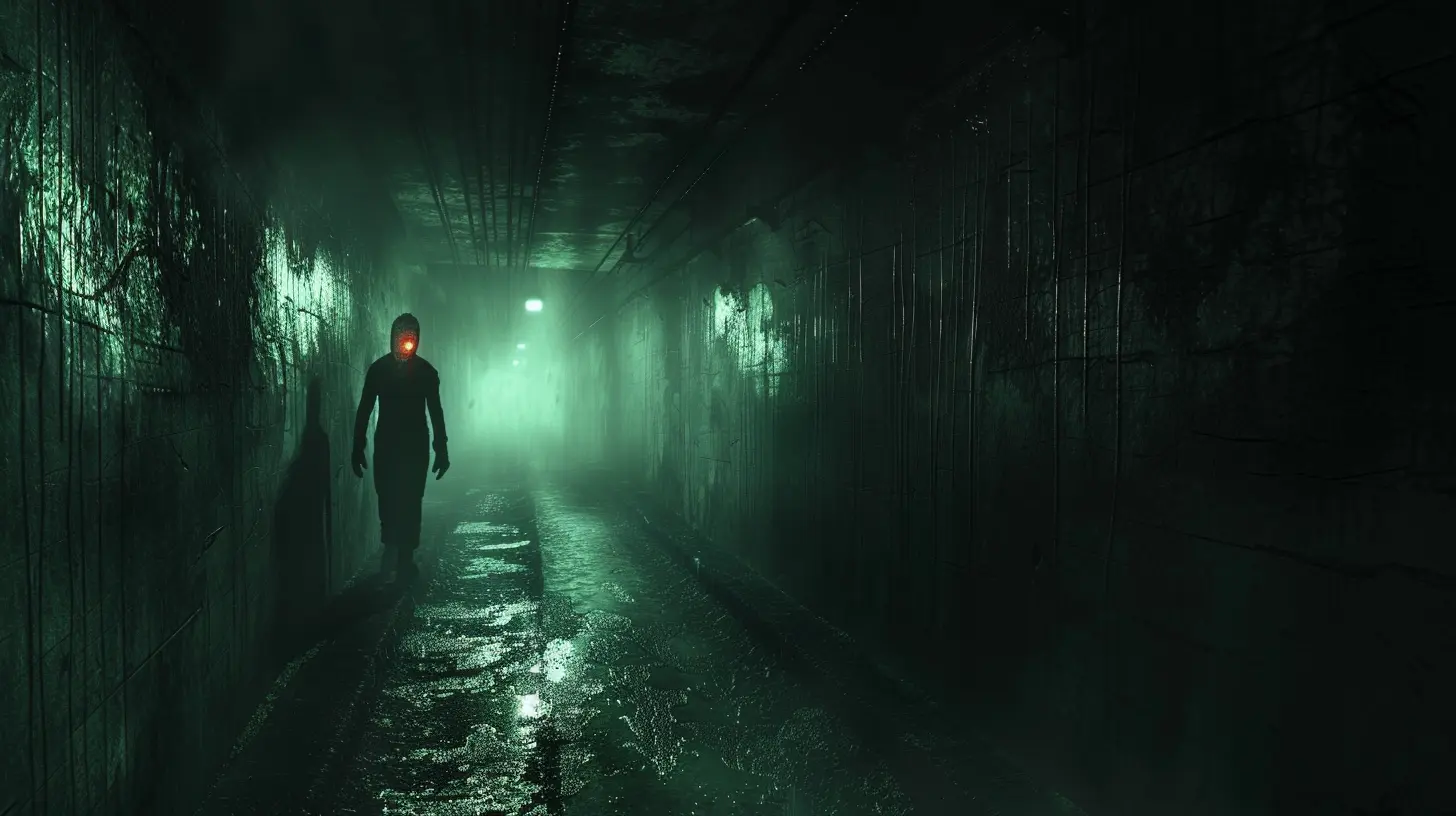
Why Do We Enjoy Horror?
Okay, let’s start here. Why on earth do so many people willingly put themselves through the emotional wringer for the sake of entertainment? I mean, screaming at a monitor at 2 a.m., clutching your mouse like your life depends on it—what’s the appeal?The answer lies in our complex relationship with fear. Fear is primal. It triggers our fight-or-flight response, and let’s face it, sometimes that adrenaline rush is just plain addictive. Horror games offer a way to experience terror in a safe, controlled environment. Think of it as skydiving for your brain—scary, sure, but you know you’re not really going to splatter on the pavement.
But horror games aren’t just about giving us goosebumps. They’re a mirror. They reflect the parts of ourselves we’d rather not think about—the selfishness, cruelty, or desperation that surfaces in the face of chaos. Sounds heavy, right? That’s because it is.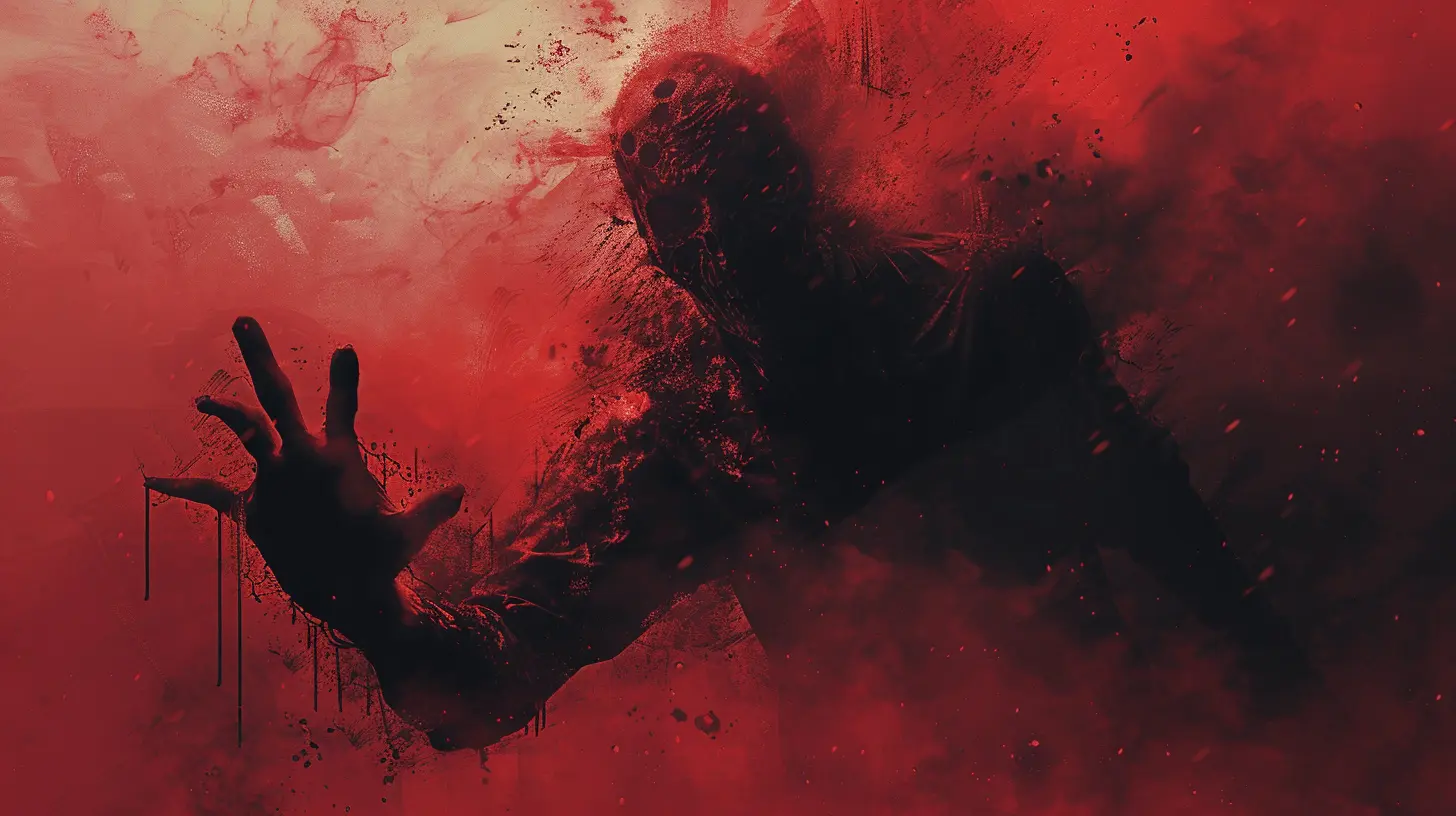
The Moral Dilemmas of Survival
Let’s talk survival horror, one of the most iconic sub-genres. These games are basically morality tests wrapped up in horrifying scenarios. Take The Last of Us for instance. Sure, it’s a post-apocalyptic tearjerker, but it’s also a deep dive into human instincts.Would you save a friend or yourself if zombies were breathing down your neck? Would you betray someone to get your hands on the last can of beans? These are the kinds of questions survival horror forces you to confront. And honestly? It’s uncomfortable. But isn’t that kind of the point? These games remind us that, under the right (or wrong) circumstances, we’re all capable of things we’d rather not admit.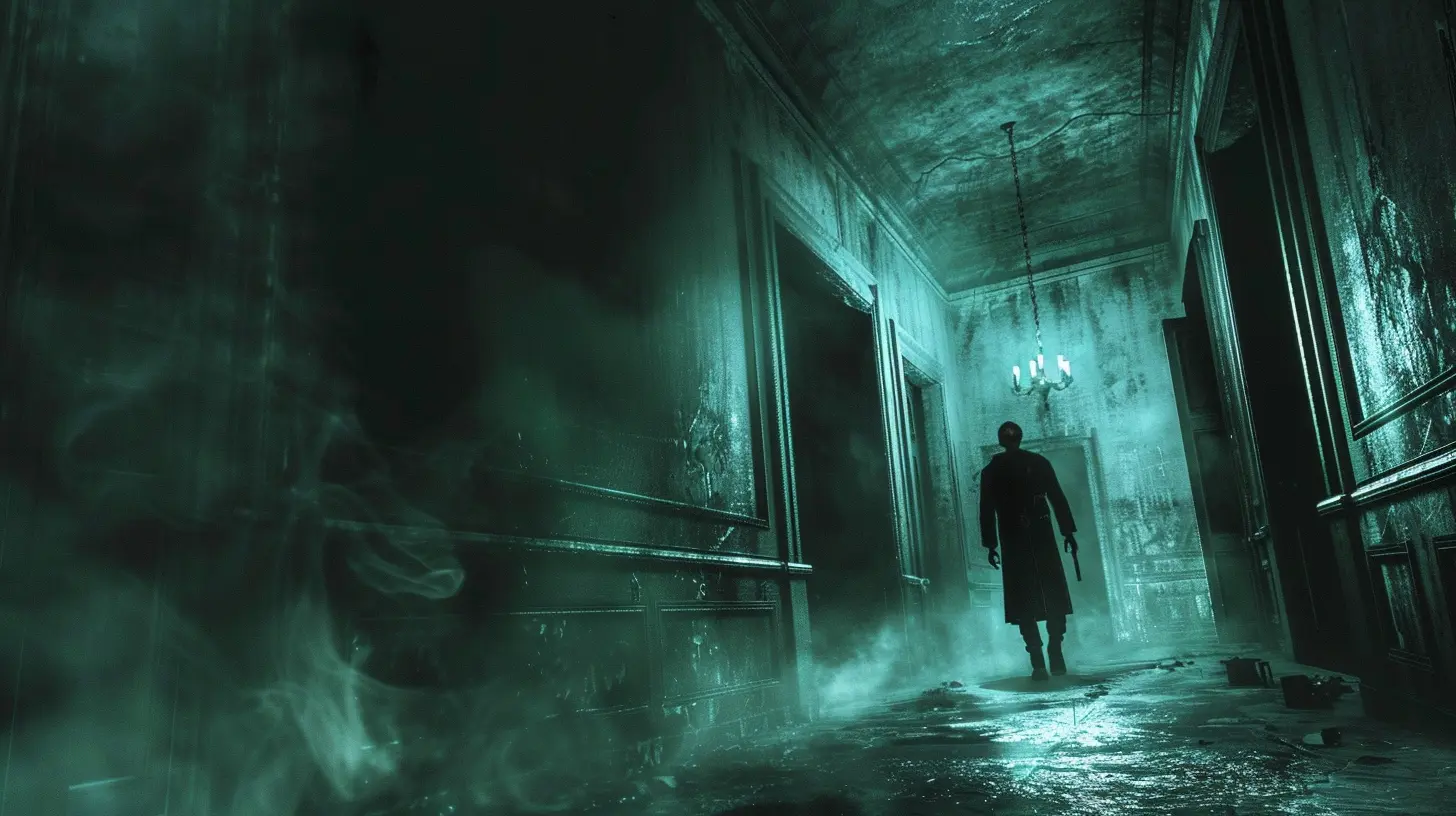
Monsters as a Reflection of Humanity
Let’s not forget the monsters. Oh, the monsters! From grotesque abominations to eerily humanoid entities, horror games thrive on their unsettling antagonists. But have you noticed how often the monsters in these games are metaphors for human flaws?Take Silent Hill, for example. It’s not just about creepy fog and menacing monsters. Those monsters are literal manifestations of the protagonist’s guilt, fear, and trauma. Pyramid Head isn’t just some dude with a giant knife. He’s a walking, stabbing embodiment of shame and punishment.
And then you’ve got games like Resident Evil, where corporate greed and unethical experimentation turn humans into monstrous creatures. It’s not a subtle jab, folks—it’s a full-on gut punch reminder of how our actions as a society can spiral out of control.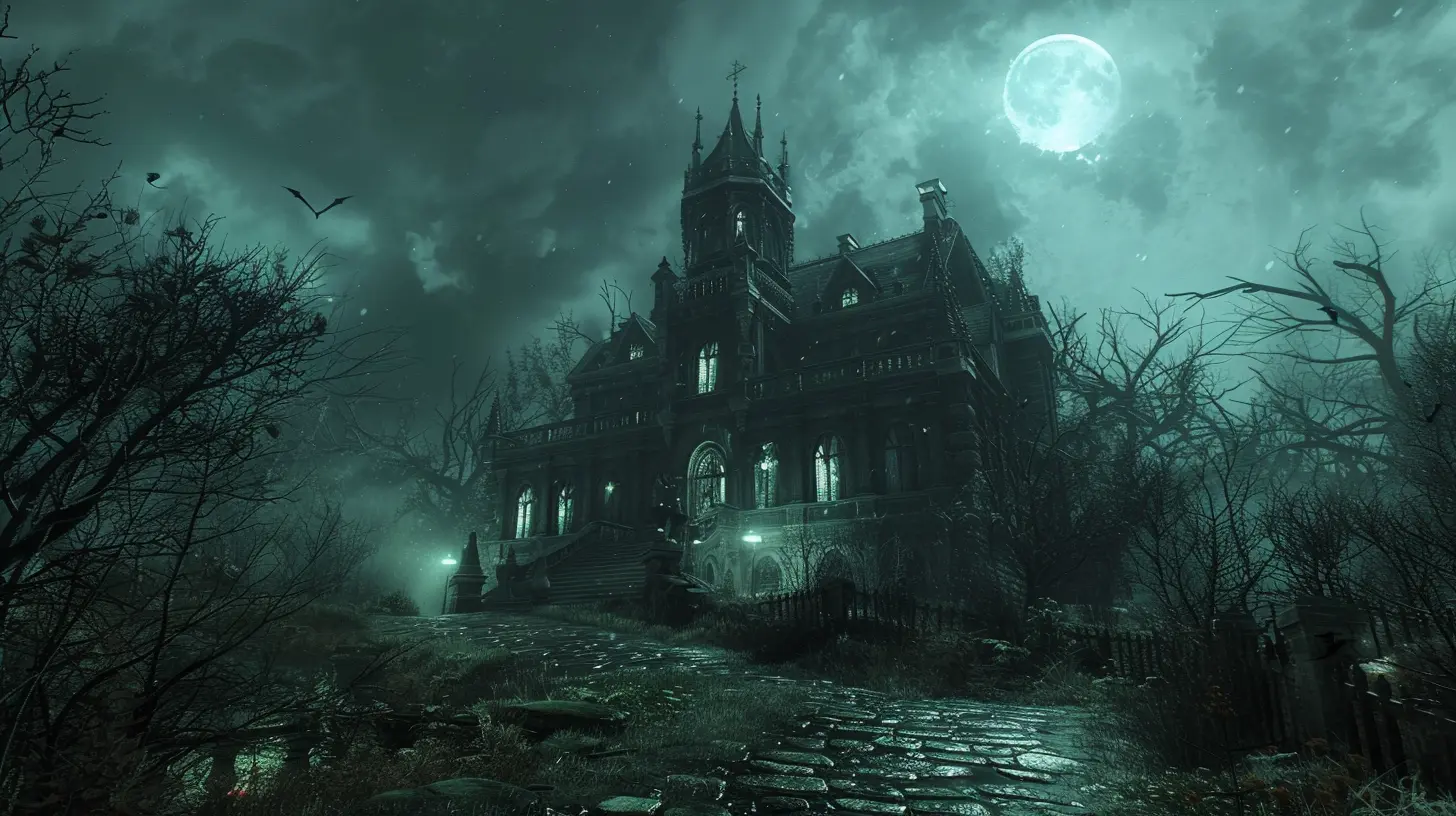
Psychological Horror: The Mind is the Scariest Place of All
If you ask me, psychological horror hits differently. Forget the blood and gore. These games mess with your mind, and that’s way scarier. Games like Amnesia: The Dark Descent or Outlast don’t just throw monsters at you—they mess with your perception of reality itself.What makes psychological horror so spine-chilling is its ability to tap into our most basic fears—losing control, isolation, the unknown. It’s like those nightmares where you’re running but your feet won’t move, or you scream but no sound comes out. Only, in a game, you’re wide awake and those feelings are cranked up to eleven.
Psychological horror games are a masterclass in tension. And they often tell us something profound about our own anxieties. Why is isolation so terrifying? Why does the unknown make your stomach churn? It’s because deep down, we’re social creatures who crave understanding and connection. Take that away, and we’re left floundering in the dark—both literally and metaphorically.
The Allure of Moral Ambiguity
You know what horror games do really well? They blur the lines between good and evil. You’re not always the hero, and the “villain” isn’t always pure evil. This moral ambiguity is what keeps us hooked.Take Spec Ops: The Line (yes, it’s more of a war game than traditional horror, but hear me out). By the time the credits roll, you’re forced to reflect on your decisions and come to terms with the fact that you might not be the good guy here. These kinds of games toy with your sense of morality, making you question your actions and their consequences.
And let’s not forget Until Dawn, a choice-based horror game where your decisions directly impact who lives and who dies. Sure, you might think you’re doing the right thing, but one wrong choice and BAM! One of your friends is toast. It’s a brutal reminder that in life—or at least in games—things are rarely black and white.
Horror Games as Social Commentary
Here’s the thing—horror games aren’t just about entertainment. They’re often a reflection of the times we live in. Think about it. The rise of zombie games like The Walking Dead and Dying Light coincided with societal fears about pandemics and societal collapse. And BioShock? That game is basically a dissertation on the dangers of unchecked capitalism.Horror games have a knack for tapping into our collective fears, whether it’s the fear of technology, environmental collapse, or the loss of individuality. In a way, they’re like time capsules, capturing the anxieties of their era while also challenging us to think critically about the world around us.
Why We Keep Coming Back
So, why do we keep subjecting ourselves to these emotionally taxing, heart-pounding experiences? Why not just stick to happy, feel-good games where nothing jumps out of the shadows?Because horror games are cathartic. They give us a space to confront our fears, to scream, to feel powerless—and then emerge on the other side feeling strangely empowered. It’s almost like therapy, but instead of a couch, you’ve got a controller. They make us think, reflect, and (dare I say it) even grow.
Plus, let’s be honest—they’re just plain fun. There’s a weird sort of camaraderie in sharing stories about that one time you nearly peed your pants playing Dead Space. It’s a shared experience, one that connects us as players and as humans.
Conclusion
At the heart of it all, horror games aren’t just about scaring the living daylights out of us (though they’re REALLY good at that). They’re a way for us to explore the most complex parts of our humanity—the fear, the guilt, the desperation, and yes, even the courage. They remind us that we’re flawed and fragile, but also capable of incredible resilience.So, the next time you’re playing a horror game and your heart’s racing out of your chest, take a moment to appreciate what’s really happening. You’re not just fighting monsters or solving puzzles. You’re exploring the darker side of human nature—and maybe learning a thing or two about yourself in the process.
all images in this post were generated using AI tools
Category:
Horror GamesAuthor:

Luke Baker
Discussion
rate this article
1 comments
Tiffany Johnson
This article brilliantly examines how horror games tap into our deepest fears and moral dilemmas. By exploring the darker aspects of human nature, these games not only entertain but also provoke thought about our own humanity. A compelling read!
October 17, 2025 at 3:06 AM

Luke Baker
Thank you for your thoughtful comment! I'm glad you found the article engaging and insightful. Horror games truly are a fascinating lens through which to explore our humanity.
